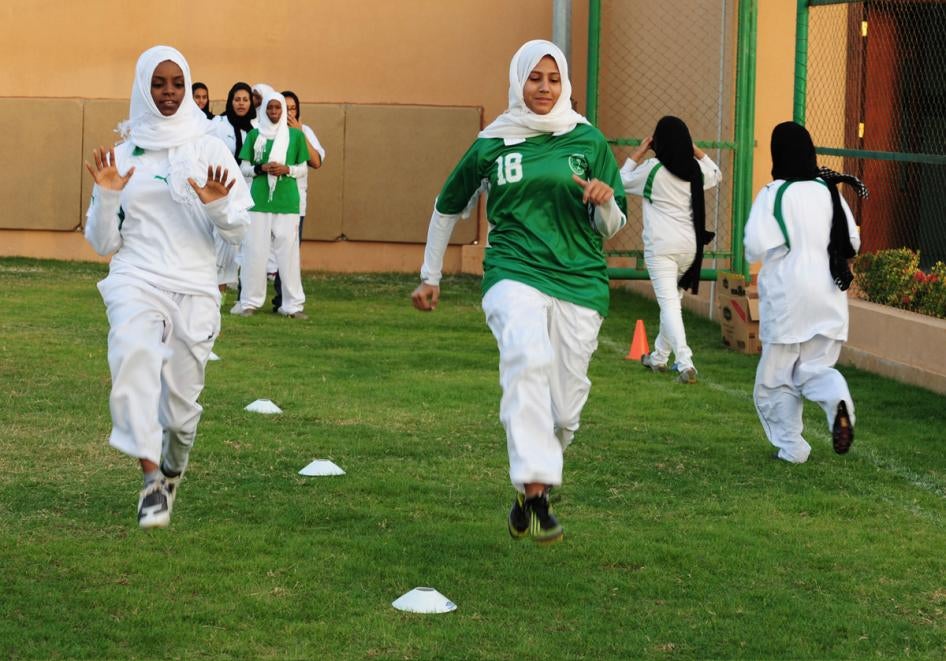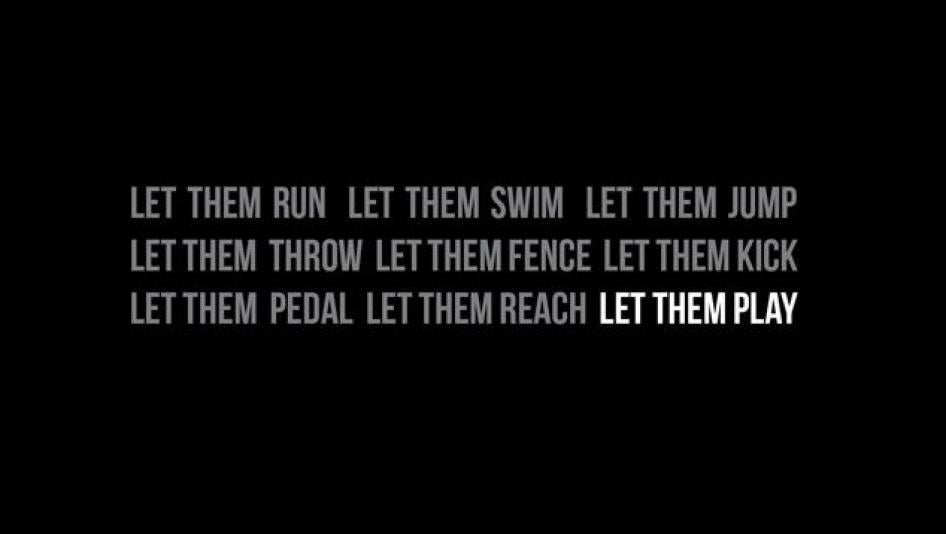At the 2012 London Olympics, the world cheered two women athletes--Wujdan Shahrkhani in judo and Sarah Attar in track and field. But back in Saudi Arabia, millions of women and girls are still banned from taking part in sport in state schools, which is a violation of the Olympic Charter's ban on gender discrimination. The Olympics should be a starting line for all of Saudi Arabia’s women and girls to enjoy the social, educational, and health benefits of taking part in sports.
FACTS
Saudi Arabia has one of the worst records of respecting and protecting women's rights. Under the government’s male guardianship system, women cannot work, study, marry or access health care without the permission of a male guardian – a father, husband, or even a son.
As documented in Human Rights Watch’s report “Steps of the Devil,” physical education for girls in state-run schools in Saudi Arabia is not offered, and only men may belong to sports clubs or work with expert trainers. In fact, government restrictions on women essentially bar them from all sports.
But denying women the chance to compete violates the human rights principles of the Olympic Charter, which states: “The practice of sport is a human right. Every individual must have the possibility of practicing sport, without discrimination of any kind…”
Saudi Arabia’s policy towards women and sport reflects the predominant conservative view that opening sports to women and girls will lead to immorality: “steps of the devil,” as one prominent religious scholar put it. Prince Nawaf al-Faisal, the Saudi sports minister and head of the Saudi National Olympic Committee, said on April 4 that, “Female sports activity has not existed [in the kingdom] and there is no move thereto in this regard. At present, we are not embracing any female Saudi participation in the Olympics.” On July 12, Saudi Arabia reversed course and announced it would send two female athletes to London—a decision welcomed by Human Rights as an important first step, but one which does go not far enough in ending an effective ban on women and girls practicing sports inside the kingdom.
WHAT WE WANT
Saudi Arabia should adopt new policies that will create real, systemic change to benefit all Saudi women and girls, including:
- Establishing a timeline and benchmarks for introducing physical education as a mandatory subject for girls in public and private schools.
- Allowing the creation of women’s gyms and sports clubs.
- Creating women’s sections in the sports ministry (General Presidency for Youth Welfare) and the National Olympic Committee.
The International Olympic Committee Can and Should Help
We are asking the International Olympic Committee to uphold the values of the Olympic Charter. The IOC should use its leverage with Saudi Arabia and urge the country to take steps to end discrimination against women in sports.
For further information:
> Read the report, "Steps of the Devil"
> Read the Q&A
> IOC/Saudi Arabia: End Ban ... (2/25/12)
> IOC: Olympic Hurdles ... (5/23/12)
> Saudi Arabia: Reversal ... (7/11/12)
> Saudi Arabia: Female Athletes ... (7/12/12)
> Olympics: For Saudi Women ... (7/15/12)
Articles:
> New York Times 2/15/12
> The Telegraph 5/29/12
> AFP 6/26/12 (Tribune.com.pk)
> Bikaya Masr 7/10/12
> Washington Post (AP) 7/11/12
> The National (Abu Dhabi) 7/11/12
> Washingtonpost.com/AP 7/12/12
> Wall Street Journal 7/12/12
> Daily Mail (UK) 7/12/12
> New York Times 7/14/12
Op-eds:
> Nikki Dryden, "Let Saudi women compete in London," Globe and Mail 6/6/12
> Minky Worden, "Saudi Arabia's unacceptable failure to field female athletes for the Olympics," The Guardian 7/10/12
> Faisal Abbas, "'Playing Ball' With Saudi Women ," Huffington Post 7/18/12
> Minky Worden, "For Saudi Judo Player, a Quick Loss But a Barrier Broken," Daily Beast 8/3/12
Radio:
> CBC Radio (The Current) 6/15/12, "Saudi Women Barred from Olympics"
> The World 7/12/12, interview of Minky Worden











